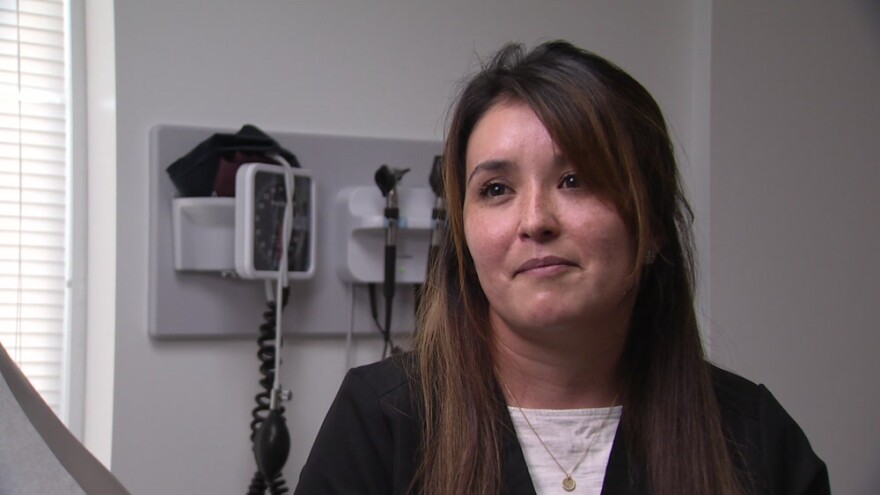Silvia Garcia Murcia’s journey to becoming a physician assistant in Richmond has been anything but simple.
At the age of 16, Murcia immigrated from Honduras, trekking 2,000 miles to Arizona, following a similar path to many who come to the U.S.
The journey took her two months. She spent about two weeks in Guatemala, after which she remembers moving from place to place. She said she spent a lot of time crossing Mexico by walking and riding in trailers and buses before being smuggled into the U.S.
“I was 16 years old. I had no idea what I was doing. But we crossed [from Mexico through the Sonora Desert]. We walked for five days. That was the hardest part, I think, walking five days,” Murcia recalled. “We didn't have water or food. But seeing people die, that was when I realized like, ‘oh my gosh, what did I do? You know, like, what did I get into?’ But there was no way to go back.”
After being in the U.S. for some time and traveling east, Murcia said she was detained by U.S. Immigration and Customs Enforcement. She spent time in a maximum-security prison in New Jersey before being sent to a detention center for minors in New York. Officials told her they needed to find a foster care program for her within the U.S. or she would be sent back to her country.
At the age of 17, Murcia said she worried that she wouldn’t be accepted into a foster care home. But Commonwealth Catholic Charities in Virginia took her in. (CCC has a program for unaccompanied refugee minors who have fled their homes because of war, persecution or other dangerous living situations.) She was brought to Virginia and matched with foster parents in Chesterfield County.
Murcia said her foster parents cared for her and supported her education. She always loved medicine: Biology was one of her favorite subjects. She excelled in school, all while learning English. She attended Meadowbrook High School, then John Tyler Community College, University of Richmond and finally Shenandoah University, where she received a master’s degree in physician assistant studies.

Now, as a physician assistant at Daily Planet, she serves and relates to her patients. Daily Planet’s Southside Richmond location treats predominantly Hispanic and Latino residents.
“Probably like 98% of my patients are Hispanic. And I love that I feel comfortable with them. And I know they feel comfortable with me,” Murcia said.
“When I came here, I was placed in foster care, and I saw the necessity. I volunteered a lot in clinics, like Crossover Health Brigades, care clinics in VCU, and I saw the need, especially in the medical community. I was helping patients with documents, and I was interpreting different things,” Murcia said.
And while she was empowering her patients to communicate through their native language, they were also helping her.
“Even now that I speak English, I'm still learning. And I when I meet someone who speaks Spanish, I feel more confident because that's my first language. And I think the patient says the same," she said. "I have seen patients that they're like, ‘Oh, you speak Spanish? I never had the chance to tell this to, you know, other providers that they don't speak Spanish.’ And I think it just makes you feel like you are home."
Breaking the language barrier has also been instrumental in caring for patients, Murcia told VPM News Focal Point. She said there are often words that exist in Spanish that don’t translate to English. But because she is bilingual, she can understand her patients better and come up with a more accurate treatment plan.
"When they [talk] about stomach pain and they have all these names for stomach, uterus, low abdomen. They have a lot of words. Like matriz,” which Murcia said translates roughly to womb in English. “Dicen, ‘Me duele la matriz.’” (They say, "My womb hurts.")
When asked why it's important to her to work with underserved communities, Murcia said, "I come from an underserved community."
Watch VPM News Focal Point, Thursdays at 8 p.m., on VPM PBS or on the PBS App.



